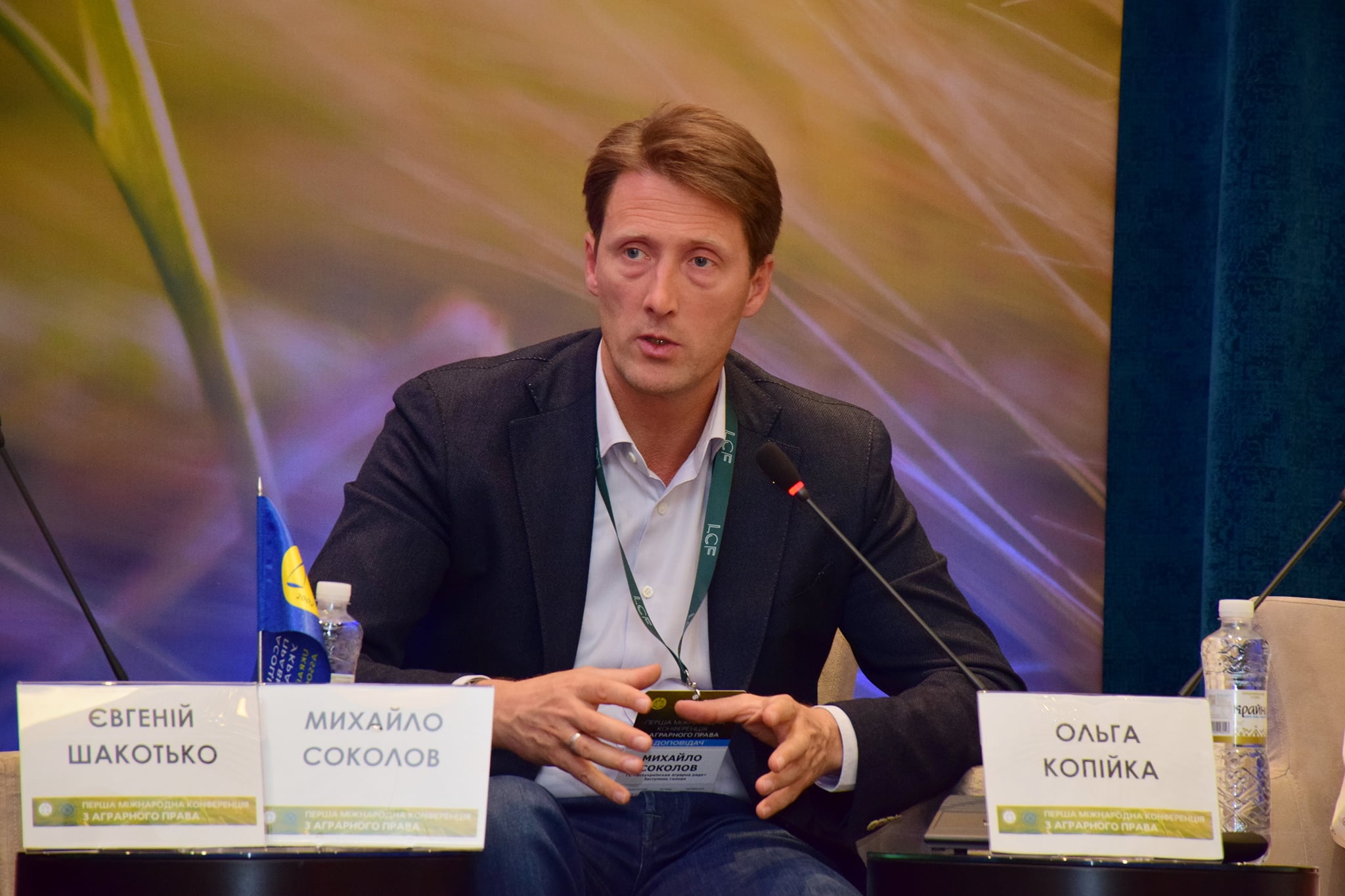
The UAC Deputy Chairman Mykhailo Sokolov told to the publishing house “Vesti” about the system of control over water balance in Ukraine, the critical state of reclamation systems and the impact on their development of the draft bill 5202-D "On Water Users’ Organizations and stimulation of hydro technical reclamation".
According to the UAC Deputy Chairman, Ukraine already has a system of control over compliance with the water balance, which is implemented by the State Agency of Water Resources of Ukraine. There are relevant regulations - filling reservoirs, discharging water, washing riverbeds, etc., which regulate the amount of water in a reservoir.
Water is taken from water bodies on the basis of permits for special water usage, which have to be obtained by all final recipients. We are not just about agricultural producers, it's also industrial enterprises, water utilities, municipalities. This permit regulates how much water and from which water body it can be taken by a particular consumer.
"The draft bill 5202-d "On the Water Users’ Organization and the promotion of hydro technical reclamation of land" doesn’t interfere with this system. Moreover, if something like this appeared in this law, it would be bad, because it would violate the only system that exists and works successfully now," Mykhailo Sokolov said.
According to him, in 2020 there was a problem of drought in the South of Ukraine (in 2020 due to the drought Odesa region lost up to 90% of winter crops), the discharge limits for hydroelectric power stations were reduced rapidly. This system is an electronic register, thanks to which the State Water Agency has the opportunity to make real-time adjustments if it sees that there is a shortage of water somewhere.
The expert notes that all those who have share land and who are users of the irrigation system must have special permits for water usage and only WUOs will have the right to supply water.
“What is provided in the draft bill 5202-d to ensure the efficient operation of this system in the establishment of WUOs? The organization may supply water only to those who have a permit for special water usage, except in cases provided by law, when the water users do not need to obtain such a permit. This applies to those who use less than 5 cubic meters of water per day. In fact, this is the amount which is needed to irrigate a plot of 12-15 sotkas, ie we are talking about homestead property. However, such water users are unlikely to be members of WUOs, as the average share in Ukraine is 4 ha. And the smallest shares that are in Western Ukraine - 0.5 hectare," the UAC Deputy Chairman said.
Moreover, amendments, according to which only those who have a special permit for water use can be members of WUO’s, have been submitted to the second reading of the draft bill. And the parliamentary secretariat recommends the agrarian committee take them into account. In addition, there is a proposal to oblige a WUO’s member to inform the organization about the expiration or revocation of such a permit. Moreover, the audit committee should check the correspondence between the amount of water which was actually supplied and the volume which is stipulated in the permit. That is, the WUO will ensure that the amount of water supplied by it from a specific intake point to a specific water user is exactly as is specified in the permit.
As for the impact of the draft bill 5202-d on the development of the irrigation system of Ukraine, it will undoubtedly be only positive. After all, it will finally allow agricultural producers to invest in irrigation systems legally. Nowadays, they cannot do this, although they have resources and desire. Despite the fact that reclamation systems are in a critical condition: of the 2.3 million hectares of irrigated land that Ukraine had at the beginning of independence, a little more than 500 thousand hectares are irrigated. Reconstruction requires too large investments. In addition, the main costs are for the delivery of water to the fields. Of course, main canals and pumping stations need to be modernized and repaired, but in terms of cost allocation, the bulk is a lower level irrigation system. These are pumping stations that take water from the main canal and supply it to the field through a system of pipes. The cost of their modernization can be estimated at about USD4 billion. It is clear that the state does not have such funds now, but farmers do. Unfortunately, the current legal base is structured in such a way that farmers cannot invest in irrigation or use credits. But the draft bill 5202-d is designed to solve this problem.
Tuesday, 9 November 2021